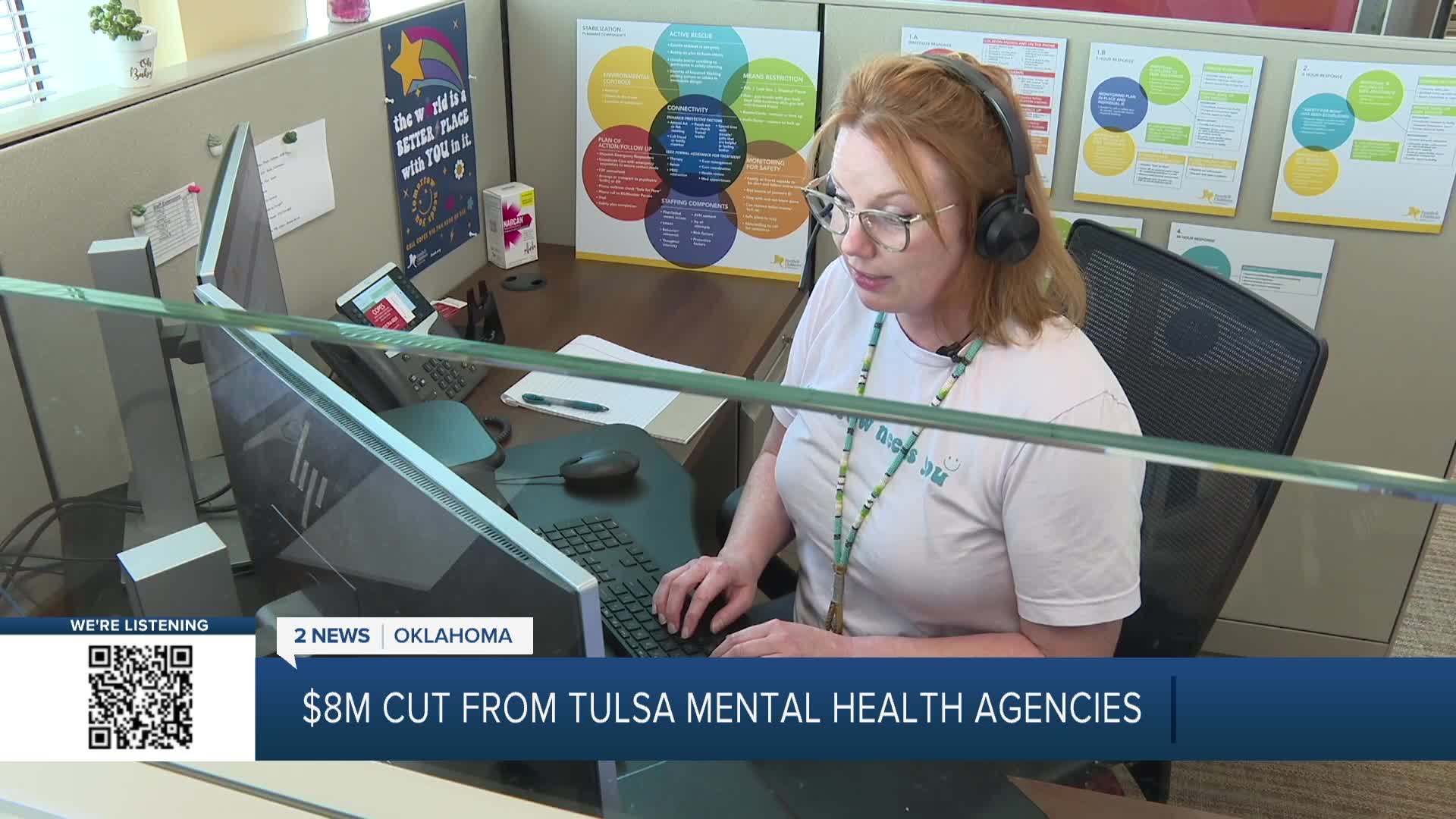TULSA, Okla. — Tulsa mental health agencies are facing more than $8 million in state funding cuts, marking another round of reductions that leaders say will impact critical services as demand rises.
Mayor Monroe Nichols announced on Oct. 1 that Family and Children Services and Grand Mental Health are once again facing funding cuts from the Oklahoma Department of Mental Health and Substance Abuse Services.

Local News
CRITICAL CUTS: Mayor Nichols says Tulsa losing $8M mental health funds
Family and Children Services expects to lose $4.4 million, with crisis care and COPES programs taking the biggest hit. The COPES program is a counseling service that diverts 911 calls from police to mental health professionals.
WATCH: 'It's Groundhog Day': 2 Tulsa mental health agencies face funding cuts again
"We're still looking at about $4 million in cuts, and that is very, very difficult to absorb, especially at a time when demand is rising," said Adam Andreassen, CEO of Family and Children Services.
ODMHSAS says cuts to COPES came because the 988 suicide and crisis lifeline is more widely used.
Andreassen disagrees with that reasoning.
"The other reality is that 988 just hasn't had the uptake that it needs to be a viable alternative," Andreassen said.
Data from the Tulsa Police Department shows COPES has diverted nearly 3,300 calls from first responders in the last 8 months.
This marks the second time this year the agencies have faced funding cuts. In March, ODMHSAS terminated contracts with both agencies, only to later restore some funding.
Over the last few months, 2 News covered funding concerns with some of the groups mentioned in the statement:
"It's Groundhog Day over and over and over again," Andreassen said.
Nichols says the department was supposed to work with legislators on funding, but decided to make cuts independently.
"What I understand is that the department decided to just decide they were going to make the cuts and not give our elected officials the opportunity to make the investments that were necessary," Nichols said.
In a statement, the department says its goal is to "maximize every budget dollar" and "reduce wasteful and redundant spending."
Full statement:
“Our goal is to maximize every budget dollar for the greatest impact and reduce wasteful and redundant spending. We prioritized preventative, as well as those services that meet Oklahomans at their moment of crisis.”
Essential services are:
mental health and substance use prevention
24/7 Crisis Continuum (988, Mobile Crisis, Crisis Receiving and Stabilization Centers)
direct services provided through our state operated facilities
inpatient psychiatric treatment
residential substance use treatment services,
outpatient mental health and substance use treatment
competency restoration
criminal justice services
A Grand Mental Health spokesperson says they can continue services through June 2026, but did not specify what exactly is getting cut. Family and Children Services funding will also continue through June 2026.
Despite the challenges, Andreassen remains optimistic about community support.
"We're getting through this together because we are embedded in the community, and because the community knows what we do is important," Andreassen said.
Stay in touch with us anytime, anywhere --
- 2 News Oklahoma on your schedule | Download on your TV, watch for free. How to watch on your streaming device
- Download our free app for Apple, Android and Kindle devices.
- Like us on Facebook
- Follow us on Instagram
- Watch LIVE 24/7 on YouTube








